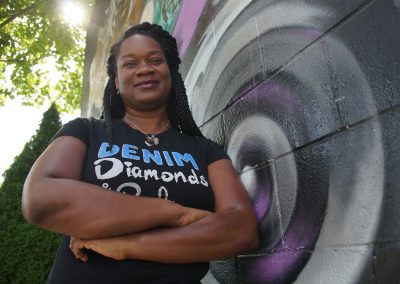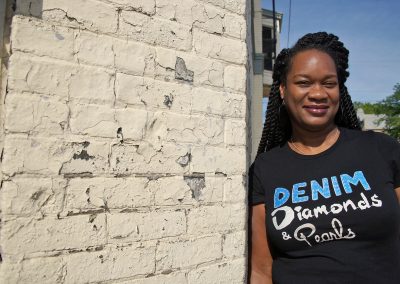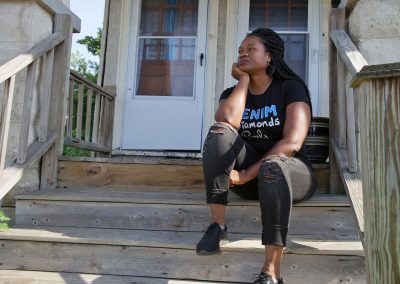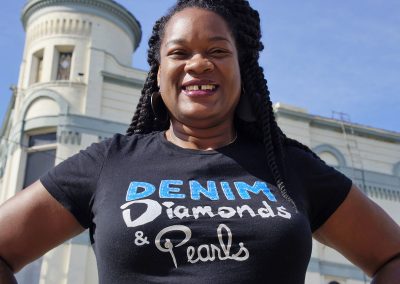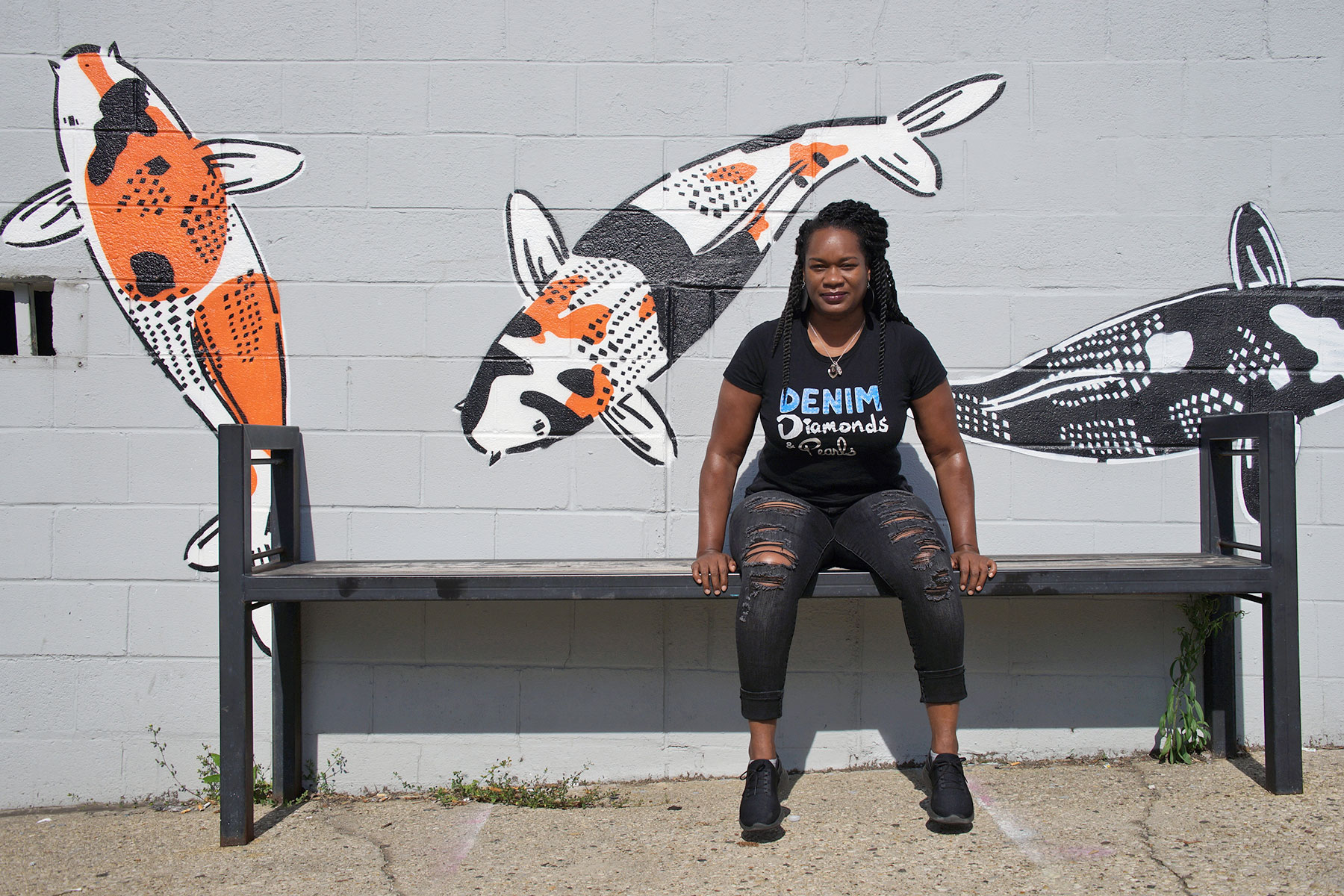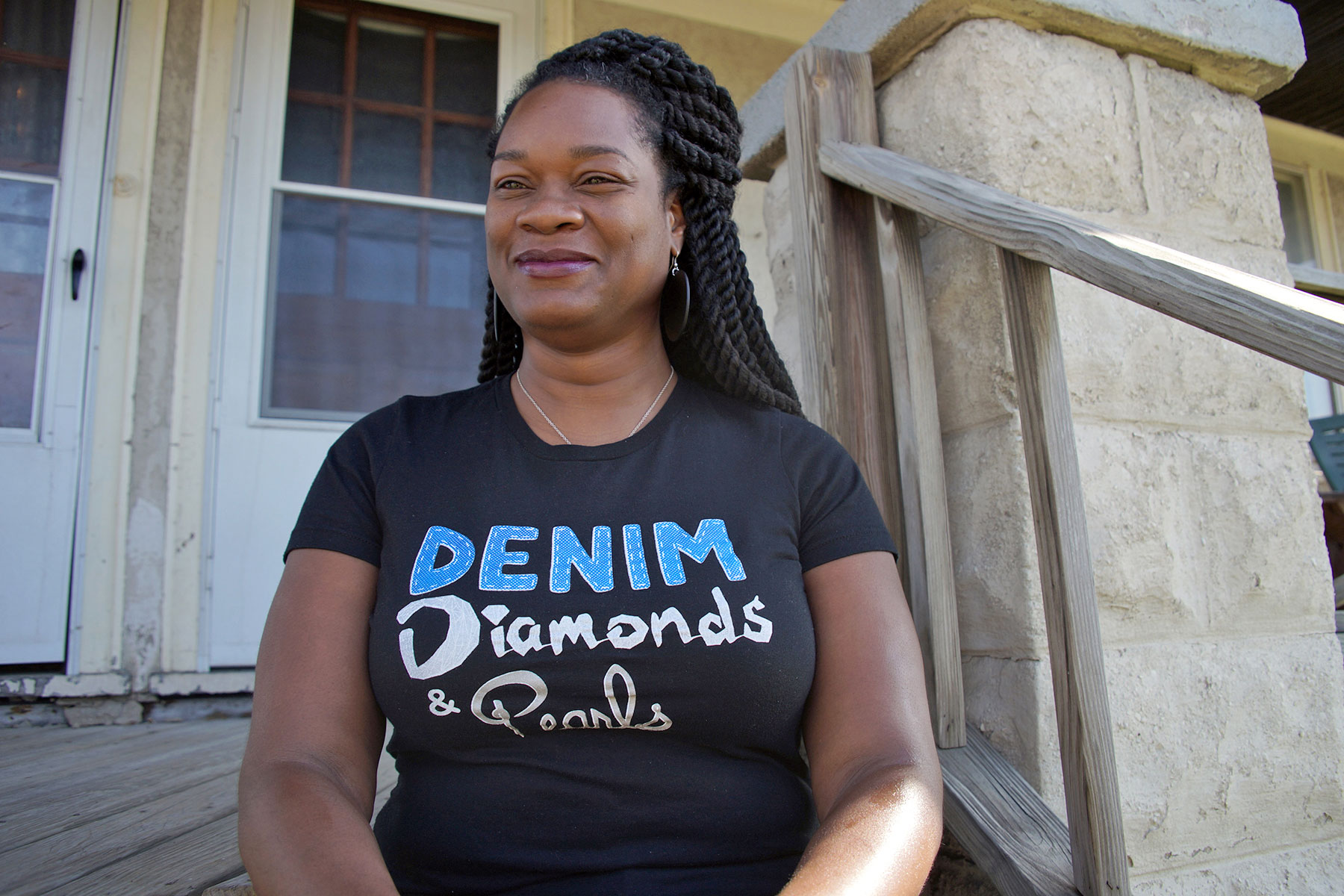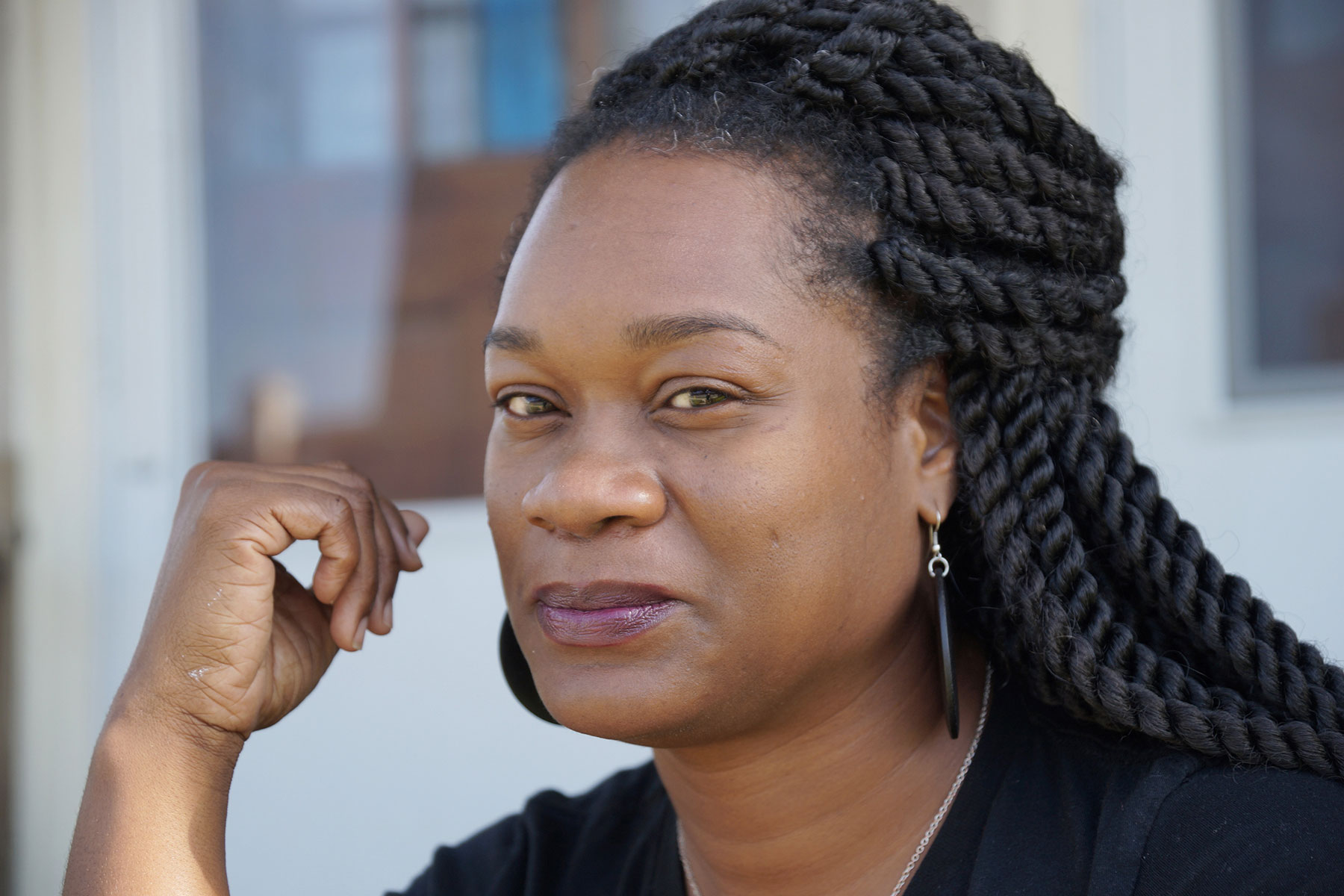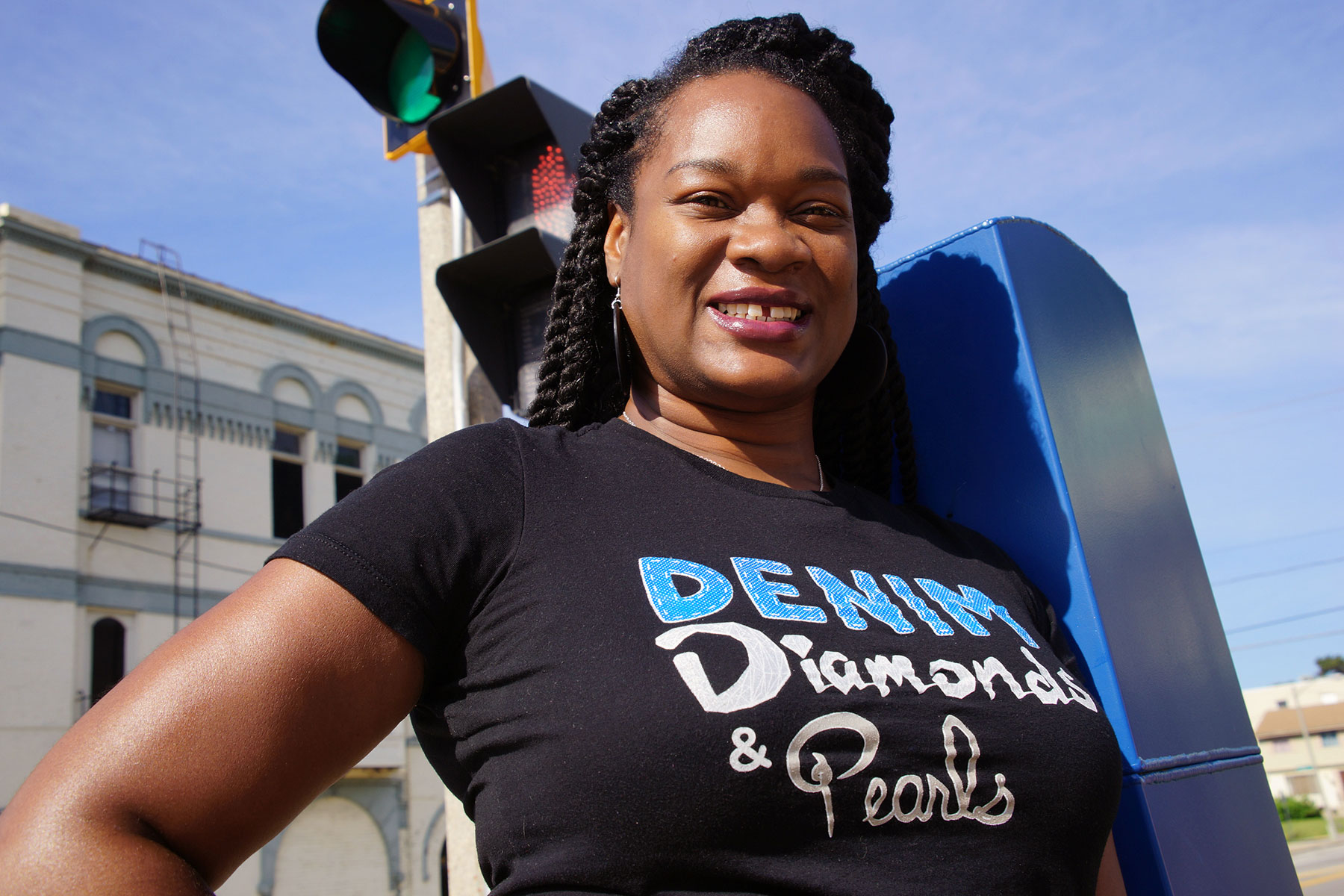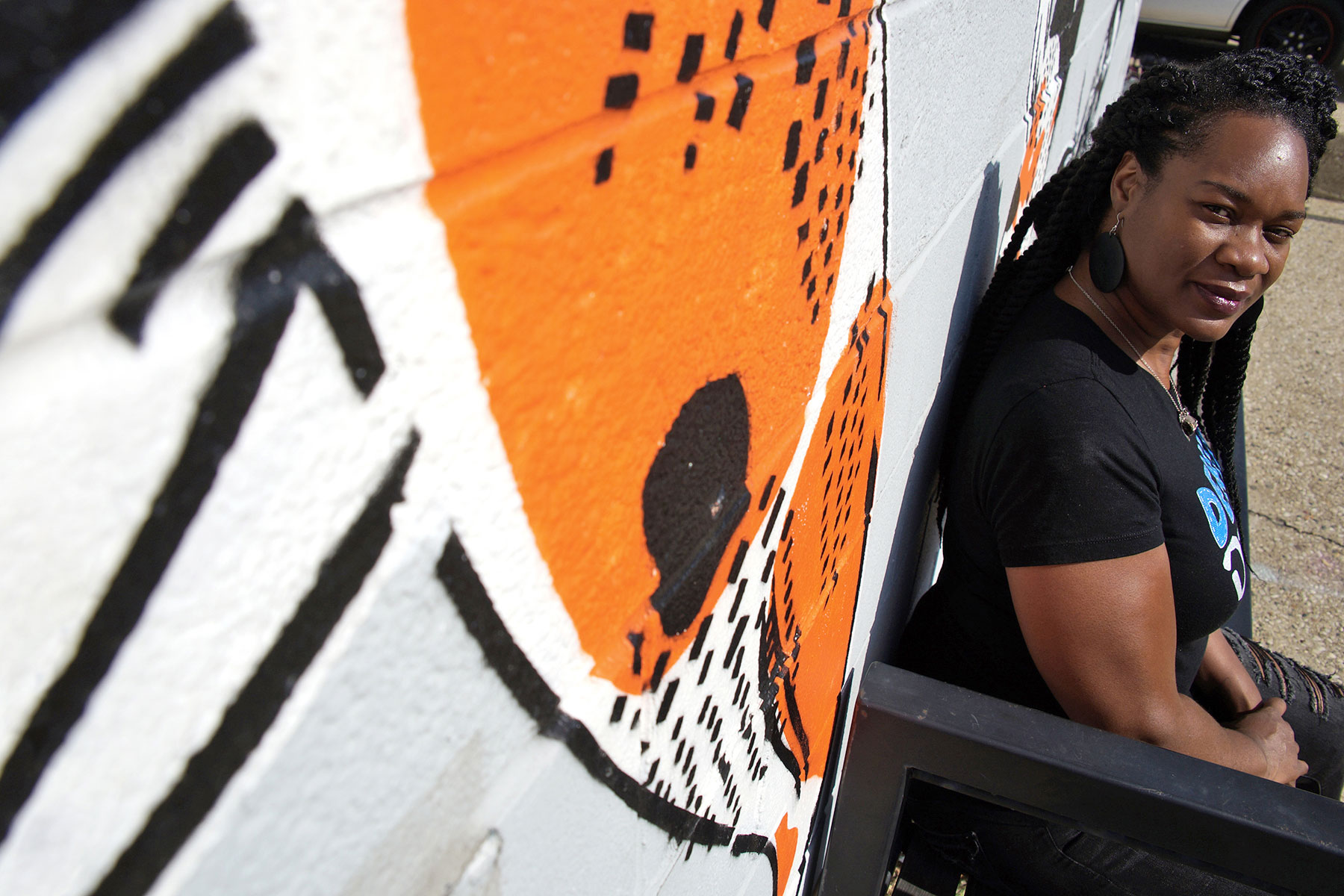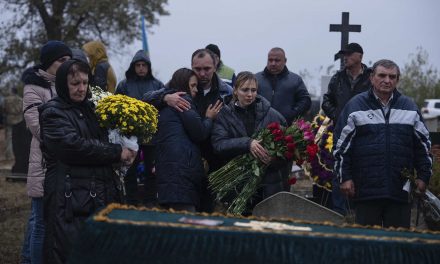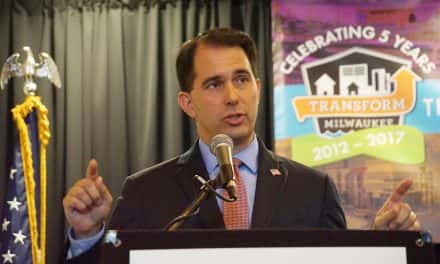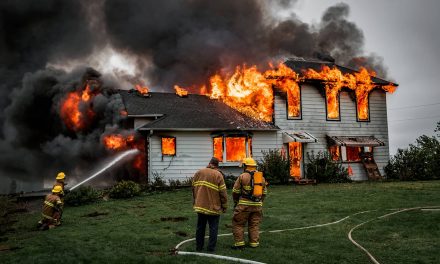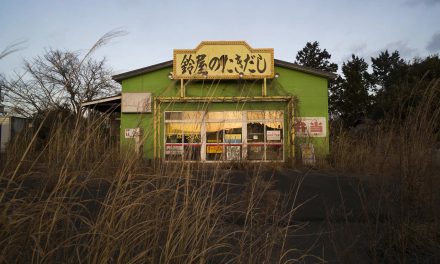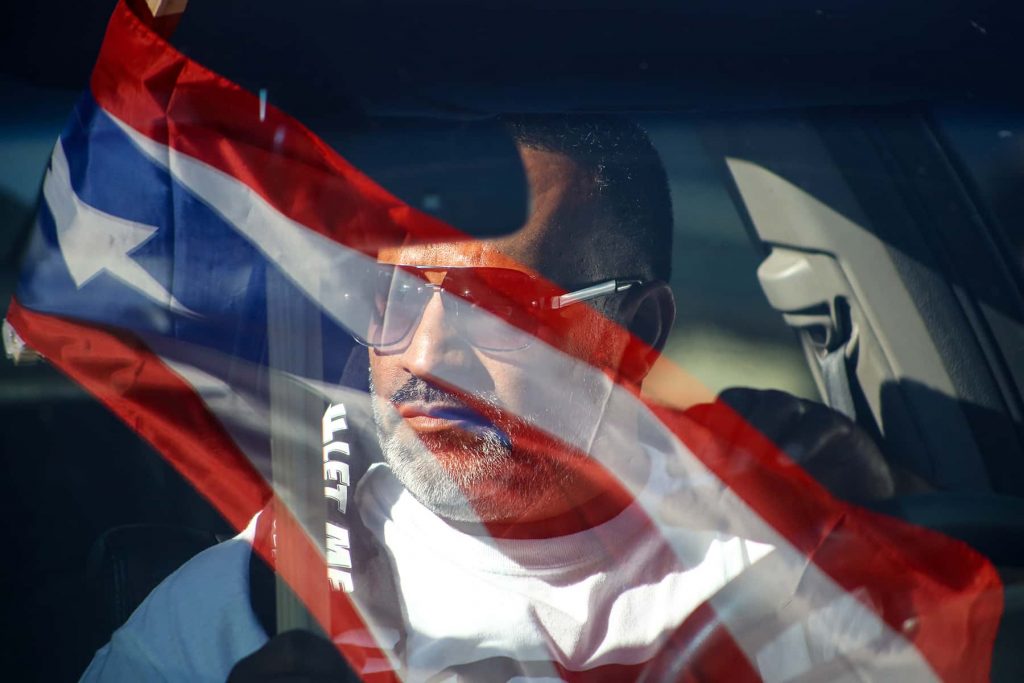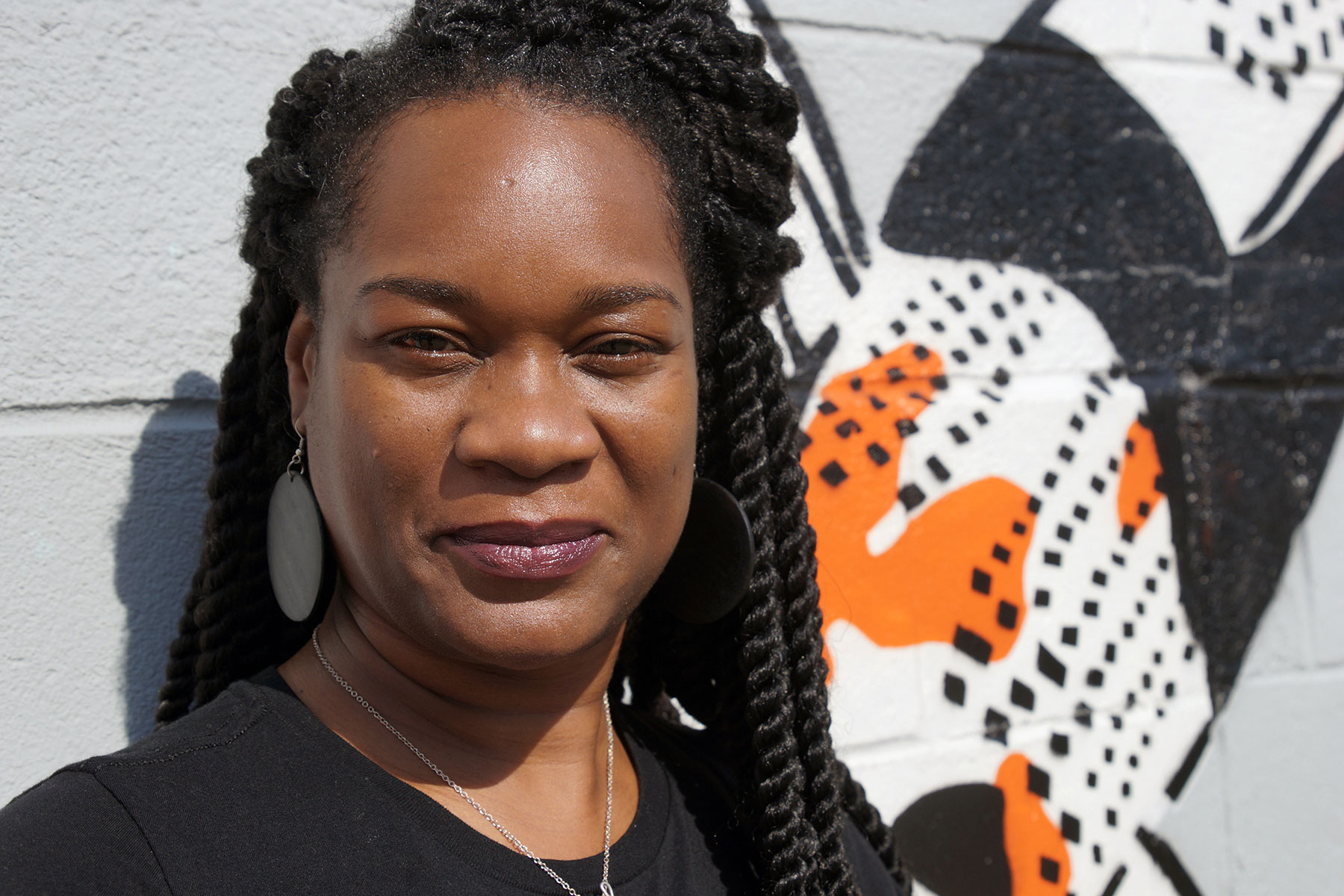
Growing up in a society that continues to normalize sexual violence and blames victims for the crimes committed against them, there was a time when Annika Leonard did not believe that her personal healing would ever be possible.
Now she facilitates curriculum to help survivors not only work through their traumatic experiences, but also assists them in their journey to find peace. Her courage continues to be a gift to the community by giving women an example and safe space to share their truth, in an effort to help everyone understand the role they each play in ending sexual assault.
Q&A with Annika Leonard
Milwaukee Independent: What programs have had the most positive impact on your students?
Annika Leonard: Over the past few years I have worked as an independent contractor with Milwaukee Public Schools (MPS). I facilitated my curriculum, performed intervention work, and students received a credit for the class. Each semester I offered classes a different experience. The most recent events included hosting a Speed Networking Event, attending and presenting at the Healthy Relationships Teen Summit in Racine, and attending a Human Trafficking awareness fundraiser hosted by Foundations for Freedom. Each event impacted students positively. At the Speed Networking event, youth were able to engage with women of color who were in non-traditional careers, ask questions about their journey, and receive a mentor. At the Healthy Relationships Teen Summit, I co-facilitated a workshop with my youth intern and her classmates supported her by attending the workshop. In all honesty, I believe the Human Trafficking Fundraiser left the most positive impact on my students. They were able to attend a brunch, hear a survivor’s story, and take pictures together afterwards. Several them wanted copies of her book and consistently asked when they could attend another event like it.
Milwaukee Independent: Considering the hardships, you have faced in your life, what gives you hope?
Annika Leonard: The legacy I have inherited gives me hope. I am a descendant of a people who survived the first documented holocaust, the African MAAFA (a Kiswahili term for “terrible occurrence” or “great disaster”). My ancestors survived being kidnapped, enslaved, forced onto sex farms, incest, state sanctioned violence, rape, murder, medical experiments, domestic terrorism, Jim Crow, and police brutality. What gives me hope is the awareness that my ancestors experienced far worse than I have, and they survived, I am here. I have experienced more than others and I have survived, and I tell my story to share the promise of tomorrow. Every time I see an inbox, text message, or receive a phone call from one of my current or past students I have hope. When they reach out, it shows me that they are willing to take a step towards asking for what they need, which is one step closer to healing.
Milwaukee Independent: If you could send a message back in time to yourself at age 10, then another at age 20, what would you say?
Annika Leonard: I was sexually assaulted twice before I was 20 years old and once more before the age of 25. The message I would send myself would be that it is not my fault, that I did not ask for “it.” I was only a child, and there was little I could do to stop it at the time. Once that dialogue is complete, I would tell myself that I do have to take responsibility for any harm I have caused while coping with what happened to me. I think that is a conversation that is sometimes missing from conversations to our younger self. We are responsible for how we engage with people in the workplace, in relationships, while parenting, in school, and such. Sexual violence has permeated every aspect of our lives. In some ways, I became comfortable being a “victim,” in a sense that I was allowing life to happen to me in more ways than I was creating the life I wanted to live. The work that I do with Priceless Incite is reaching back to the 10 and 20-year-old me. The curriculum I have developed (Diamonds are Forever Priceless) is a documentation of my journey engaging with the trauma I have experienced in both healthy and unhealthy ways. It is a documentation of my journey to discover my worth. I wish I had access to something like this and someone like me when I was younger.
Milwaukee Independent: What was the turning point for you to speak out about your personal experience, and what holds most people back from sharing details of their situation?
Annika Leonard: Prior to working with youth who have experienced gender-based violence, I worked with adults who were referred to me because they were on W-2 and domestic violence was a barrier to finding employment. In that position I encountered several women, of various ages, backgrounds, and ethnicities, who experienced multiple intersecting forms of trauma, including being sexually assaulted as a child. I could relate because this was my story, they would say “I have never told anyone” and it seemed like a scene from the movie Groundhog Day, my days kept repeating. There was a pattern of adults who have never spoken their truth, who raised children, who were wives, sisters, friends, aunts, and never spoke their truth. Shame played a big role in not speaking, some people share what happened and they are blamed for being in the situation to be violated. I can’t speak for everyone, but I don’t think every space is safe for people to speak the truth about their experiences. Whenever I do, people tell me “how brave I am” and “they could never do what I do”, sometimes people say, “they want to do what I do one day.” I hear it all. I was employed at that organization 10 years ago, and I have successfully created spaces both in Milwaukee and across the country for survivors to speak their truth.
Milwaukee Independent: Why do you consider it a gift when survivors of sexual assault are able to tell their story?
Annika Leonard: “Tell the story of the mountain you climbed. Your words could become a page in someone else’s survival guide.” – Morgan Harper Nichols.
I don’t speak for every person who has encountered sexual violence/sexual assault. I don’t know if everyone’s experience is as extreme as some of the stories I hold from my work in the field. I will share with you why I consider it a gift when survivors tell their story. Primarily because they have survived one of the most invasive acts of violence a person can commit. It is a gift to survive what has happened, some don’t, and some survive and don’t recognize the person they become. Some survive and turn to self-harm, depression, alcohol, drug use, and other addictions to numb the pain of what has happened. I have experience with each of them and many more. I have sabotaged my life and fought to reclaim a body that was taken from me before I could understand what was happening. Those who chose to share their story are opening themselves up to reliving the pain of that experience and reclaiming what was stolen from them. I commend any survivor who shares their experiences for all those who didn’t live to tell, for all those who struggle in silence, for all those who don’t have the words to described what happened. When we tell our story, we are telling the story of many, and while it may be triggering for some to remember what has happened it is a reminder that it has happened, and other survivors who are seeking out create opportunities to heal, and that same opportunity is available to them too.
Milwaukee Independent: Why does society continue to blame the survivor of sexual assault, and dismiss the uncomfortable truth of what the suffered?
Annika Leonard: I think the truth requires everyone to look at themselves and determine if they are complacent with a society that allows its most vulnerable people be harmed. We must then ask ourselves why haven’t we done anything about what we know. I think it’s also easier for people to distance themselves from the painful truth, that we all have a role to play in ending sexual assault. Many of us do not have the courage to confront people on the harm they are causing.
Milwaukee Independent: As a form of modern slavery which is prohibited by the American Constitution, why does human trafficking remain a national epidemic?
Annika Leonard: This country has yet to reconcile that is was built on the backs of kidnapped and enslaved Africans who fit the description of what is defined as “modern day slavery.” I do not refer to human trafficking as modern-day slavery. There is no comparison to what this country has done to the ancestors of kidnapped and enslaved Africans without reconciliation or reparations. I believe human trafficking remains an epidemic because if we look at the people who “buy” other humans, we will find a larger percentage of them are professional men and they protect their own.
Milwaukee Independent: With all the resources available to survivors, why do so many individuals still think they are alone?
Annika Leonard: It’s not about resources. In my opinion, survivors don’t come forward because we live in a society where sexual violence is normalized, victims are blamed for the violence committed against them, and often times there is little recourse.
Milwaukee Independent: Can you explain the religious double standard of Evangelicals who preach morality, then excuse allegations against men like Harvey Weinstein or Donald Trump for being sexual predators?
Annika Leonard: I cannot explain the “religious double standard,” What I will say is that the religious double standard is nothing new. The people who founded America claimed to be Christians and kidnapped and enslaved Africans for generations. What is the difference? I don’t see one. What I do see is that we eat what we are served. Meaning, we should probably be suspicious of people who protect sexual predators and question why they are defending such acts.
Milwaukee Independent: Why is it harder for men to step forward and talk about their victimization?
Annika Leonard: Some reasons men do not disclose include the stigma around feeling or appearing helpless and not in control. Men have been socialized to not show emotion or positively identify with anything that compares them to femininity. I also believe that there is a lot of homophobia, so if the person who assaulted an individual is the same gender it may cause some embarrassment disclosing this. I also believe that we are not socialized to see the acts against young men and sexually violent. If a young man loses his virginity to an older woman, it’s considered a good thing and something to be praised and celebrated, versus a violent act that is sexual in nature.
Milwaukee Independent: What does Denim Day mean to you and, like many anniversaries that are observed and forgotten, how to you keep its message in public awareness all year?
Annika Leonard: Last year I was interviewed for a blog about Denim Day to be published on the United Way of Greater Milwaukee’s website. During the interview I shared an experience of being raped in college by a man I was dating. I wore jeans that were ripped down the middle. I can relate to Denim Day because of this experience. I believe Denim Day has been an excellent platform to share the story of sexual assault survivors. I also believe that if the young woman who was raped by her driving instructor was African American, there probably would not have been a movement this powerful to support and uplift her experiences. We see evidence of this in sentencing disparities and in the way victims of color are treated in every step in the criminal justice process. I dream of a world were we all stand together with anyone who has experienced sexual harm. A great example of a sexual assault movement, seen through an intersectional lens, is #metoo. It was actually a campaign created almost 10 years ago to reach the survivors no one talked about. The founder of the movement, Tarana Burke, used the phrase to connect to survivors and let them know they are not alone.
Denim Day raises awareness; the Denim, Diamonds and Pearls event expands that awareness to create a safe space to engage in critical dialogue, and offer pearls of wisdom to those who have struggled around the impact of sexual violence. My dream for Denim, Diamonds and Pearls is that we can do year-round preparation for youth who become Denim Day Ambassadors. Then the message can be demonstrated continuously, through a change in behavior caused by the impact of being able to discuss sexual violence openly.
Milwaukee Independent: What was your biggest or most unexpected surprise after starting Priceless Incite, and what has been its impact on your personal journey?
Annika Leonard: My biggest surprise was the amount of support from my friends and the community at large. I knew I had a vision with Priceless Incite, but I really had no idea how it would work. Once I began communicating my vision, support began to show up from unexpected places. Support for my mission has made a tremendous impact on my personal journey. Now I feel a lot more confident in my ability to bring change to the community because I am not alone, I now share this vision with others.
Milwaukee Independent: What were your expectations when you started the annual Denim, Diamond and Pearls Brunch, to raise sexual assault awareness among youth, and how has the matched the results?
Annika Leonard: When I began the Denim, Diamonds and Pearls Sexual Violence Awareness Brunch I envisioned a space that would create the opportunity for community members to learn about sexual violence and to have space to share their truth. My expectation did match my results this year, because I expected it to be bigger. We were able to distribute t-shirts and gift bags to every participant. Our speakers included a diverse audience and we spoke about the spectrum of abuse, which is something I think a lot of mainstreamed events don’t do enough of. Most people of color are impacted by more than sexual violence, and often their identity increases the likelihood that they will experience sexual violence. Denim, Diamonds and Pearls provided space for participants to share stories of being sexually assaulted as a young man, acting out the aggression on other children while growing up in a violent home. Like the #metoo movement, it is a place where individuals can easily see their own experience reflected. Next year we plan to triple the attendance, have more speakers, and we will continue to have it multigenerational and intersectional.
Milwaukee Independent: What kind of support has the community given your efforts, and what remains lacking that can help further your work?
Annika Leonard: Under Priceless Incite, young women participate in my curriculum, become interns, and later facilitators of the curriculum. One of the first young women to complete this process was given the opportunity to present at National Sexual Assault conference in Texas. We could not afford to go so we began to ask the community for help. We received help from the Office of Violence Prevention, and lots of community members to attend the conference and share the amazing healing work we are doing in Milwaukee. This year we were selected to attend another conference in Texas and the same thing happened. We needed to raise money and the community and Office of Violence Prevention supplied us with the resources to take our trip.
Priceless Incite operates based on the efforts of volunteers and we are looking for volunteers to update our website, answer the crisis line, provide resources and gift cards. We could also use hotel stays, either for ourselves at conferences or for young people who are in need of emergency shelter. We can always use monetary resources as we do not receive any grant funding. We provide case management, crisis intervention, resources and referrals, mentoring, and leadership development training free of charge to the community.
Milwaukee Independent: What would you say to a young girl who does not believe she can heal from her experience?
Annika Leonard: A good friend of mine named Rosalind Muhammad has a organization called Healing Starts Today, and I believe that is an excellent reminder to each of us. I would share with her that at one point, and more often than I care to admit, I believed that healing was not possible. I think it’s important to show survivors people who look like them, who have experienced what they have experienced, and now have used their experiences to help others. We have a community full of survivors who are thriving. I would say to her, healing is possible and healing started the moment she spoke her truth. I would let her know that it’s not something that happens overnight, but she deserves to invest time back into her vision for her life instead of being guided by the trauma of her experience.
© Photo
Lee Matz

